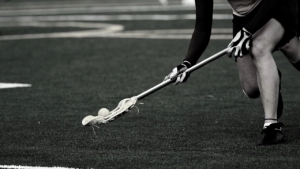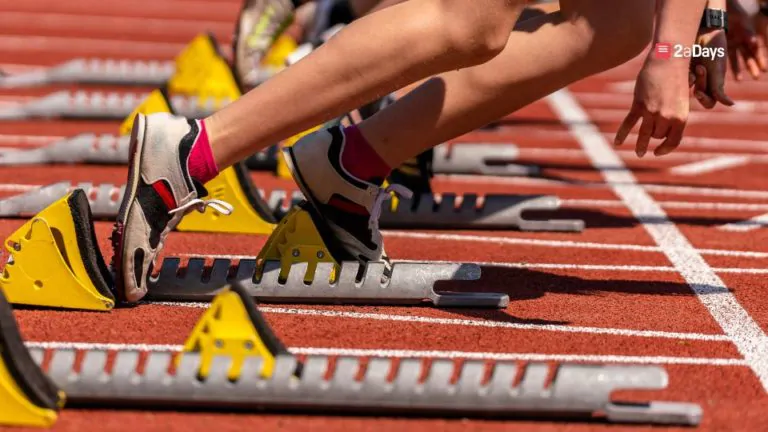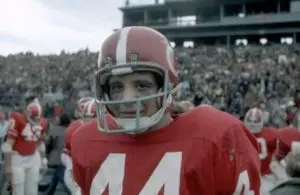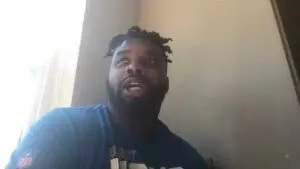Sheila Nesselbush is a recent grad from Northwestern University where she was a midfielder on the lacrosse team. Sheila, a two-time team captain, helped lead the team to the quarterfinal game of the NCAA tournament. She was also a member of the 2018 All-Big Ten and All-American teams. Sheila was an essential part of the NU Wildcat's success. NU has a reputable lacrosse program so if you are interested in playing lacrosse be sure to reach out to the Wildcat's coaches.
Sheila has given some insight into her experience as a student-athlete at Northwestern and has provided some recruiting tips. Sheila has an extensive list of awards and accomplishments from her time at Northwestern including:
Four-time Academic All-Big Ten
2015, 2018 All-Big Ten
2018 All-American
2015, 2018 All-West/Mid-West Region
2015, 2018 Tewaaraton Nominee
16th most goals in program history (122)
18th in program history in points (144)
Fourth most goals in a senior season in program history (62)
Eighth most points in a senior season in program history (76)
Sheila Nesselbush was kind enough to answer our questions in order to be able to help high school student-athletes and their families by giving some insight on what it is like to be a lacrosse player for a DI institution.
LRT: When did you start playing lacrosse, & who/what inspired you to play?
I started playing lacrosse in fifth grade. I am from upstate New York, so we started pretty young. I started playing because my older sister, Monica, started playing. When I was younger I tried out a lot of different sports and when my older sister started one, so did I.
LRT: What is your favorite part about being a student-athlete at NU?
My favorite part about being a student-athlete at NU is the ability to get the best of both worlds. The athletics here are top-tier, as are the academics. I seriously considered attending college and not being an athlete at schools like Notre Dame and Duke, but when Northwestern offered it was the best choice because I got the level of academics that I wanted as well as a competitive sports experience. In addition, the people that are involved in athletics at NU are amazing. I felt the coaching staff, academic advisors, strength coaches, athletic trainers, and any other athletic staff members truly cared about my well-being, which is so important when things get tough. Finally, the other athletes here are amazing, which makes any experience better.
LRT: What do you think makes being a team captain special?
For me, part of what made being a team captain so special is that I was selected as a leader by my teammates. It is one thing to be viewed as a team leader by the coaches, but when you are viewed as a leader by your teammates, there is no better feeling. I loved being a person that people could come to with questions or be a person that people felt comfortable talking to. In addition, being a leader allows me the chance to help create a team culture that is fun and competitive. Again, having open conversations with my teammates enable me to understand what they need and to be a captain gives me a platform to vocalize that to the coaches and vice versa.
LRT: What is it like playing in such a successful program that continuously makes it to the NCAA tournament each year?
Being apart of such a successful program is awesome. Being part of a team like this is a challenge because you play against some of the best players in the country every single day at practice. Because of this, my lacrosse skills improved immensely during my time here. I am also a very competitive person so being on a successful team is of course very fun. You have to be willing to push yourself every day, but as you said, when we continuously make the tournament, the hard work is so worth it when we have success in the postseason.
LRT: Do you have any advice for athletes who get injured during their college career? What does it take to come back and be as successful as you were in your redshirt junior and senior seasons?
Yes, I tore my ACL my junior year, and it took me almost ten months to recover and return to competition. It is obvious that coming back from an injury like that requires a lot of rehab, a lot of time, many extra lifts, extra fitness, and more. You are essentially rebuilding all of the muscles in the leg. So in terms of the physical side of things, when you are recovering, it is important to celebrate the little victories. It is not a fast process, and any improvement should be uplifting. An injured person will recover, and they will return to play, they have to trust the process. On the other hand, what is not as emphasized, is the mental recovery. My biggest obstacle was mental during my rehab. Even though I knew that my leg was strong enough, when I returned to play, I had the injury in the back of my mind, which made it hard to play my best. People deal with the mental side of things differently. For me, talking to other people who had gone through an experience like mine helped. I continued to strengthen and practice, and eventually as the season went on, I forgot all about my leg. Again, this process looks different for everyone and cannot be rushed. But what I would tell anyone is that you will feel normal again, it just takes time.
In terms of advice, I have two things to say. First, it is important to have perspective. While an injury is not a fun thing to go through at all, there are so many worse things that can happen. While collegiate sports can feel like your whole world, for me it was important to step back and remember that, while playing my sport had been taken away from me for a little while, there were so many other things in my life that I loved and could enjoy. Second, it is important to look at the bright side. Again, at first, this seems difficult, but there were so many positives that came out of my injury. I got an extra year at college, I came out of the injury stronger than I had been before, and I had the best (and most fun) season in my fifth year, which would not have happened had I not been injured. It is so easy to focus on the negatives, but it is so important that you choose to focus on the positives.
LRT: How can an athlete get on a coach's radar?
I had a strange recruiting process. Most athletes in lacrosse commit at a young age, most commit around sophomore year. On the other hand, I had focused on basketball for most of my time in high school. As a result, I headed into my senior year without any interest from any coaches. While I knew it was a long shot, I sent out a highlight tape to a list of schools. Most did not have any spots left, some offered me a tryout, but luckily, Northwestern offered me a spot on the team right away.
With that being said, in the sport of lacrosse, the best way to get on a coach's radar is to go to camps at the schools they are interested in. When at the camps, it is always beneficial to work hard! Trust me; coaches can tell if you are not taking it seriously. In addition, talking to the coach at some point is important so they can put a face to a name. Club lacrosse is huge for recruiting because so many college coaches go to the tournaments. My final point, however, is not to get discouraged. Not all camps are going to go your way, and not all coaches are going to want you. I did not commit until my senior year, and I had the best experience I could have asked for. Playing the sport for the fun of it rather than focusing solely on recruiting always helps you play better and passion shows!
LRT: Do you have any locker room rituals before a game?
I honestly only have one ritual before each game. I listened to the same two songs before every game: “What Makes You Beautiful” by One Direction and “We are the Champions.” I honestly don't know why I picked those two, but they were the one ritual that I stuck to throughout my five years.
LRT: What is your go-to meal before a game and why?
My favorite pregame meal is a bagel with peanut butter, jelly, and banana. Often our games are around noon, so the meal is breakfast. I cannot eat a lot of food before I play a game and the bagel with peanut butter allows me to eat something with carbs and protein while still being pretty light. I also love peanut butter, so that's why as well.
* Originally published on July 2, 2018, by Bryana Hopkins







